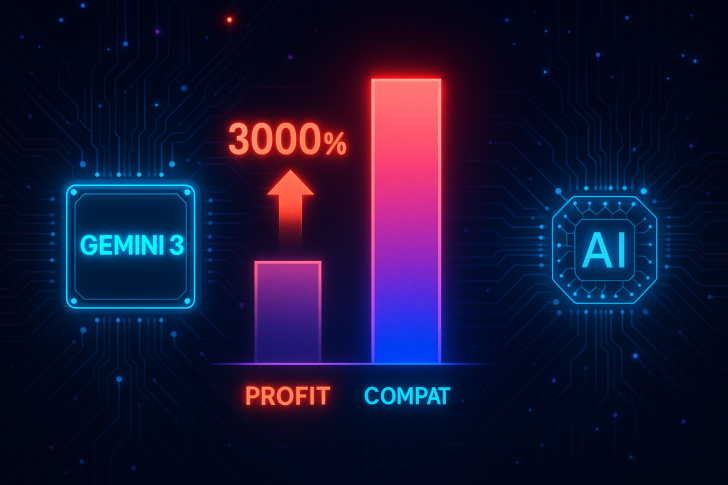⬤ Google's Gemini 3 has grabbed everyone's attention in the AI world after fresh performance data dropped publicly. The model isn't just beating competitors like GPT-5 and Claude - it's completely dominating them in ways that could flip the script on automation and how businesses actually work. What's flying under the radar, though, is what this means for the economy at large, not just raw tech specs.
⬤ The numbers are pretty wild: Gemini 3 generated roughly 3,000% more simulated profit than other top models when researchers tested them in mini-economy setups. That's not just about being smarter - it's about actually operating effectively in complex, multi-step economic scenarios. Even crazier, the cost of this kind of intelligence is dropping at 40× per year, meaning what's cutting-edge today could be dirt cheap in months. Meanwhile, Jeff Bezos is betting $6.2 billion on Prometheus, his initiative to build AI-powered factories and automate the physical world at scale.
⬤ Small teams and startups are already feeling the power shift. With tools like Gemini 3 in their hands, tiny companies can now ship products that rival what big tech produces - and they're doing it way faster. This isn't just about coding anymore. It's reshaping software development, operations, and even high-skill jobs. Gemini 3's rise shows that AI capability isn't just a technical milestone - it's changing who can compete and how.
⬤ Looking ahead, these developments will reshape labor markets, economic structures, and automation timelines across industries. As AI systems get better at generating economic output, managing workflows, and supporting physical infrastructure, they'll drive productivity in ways we're only starting to understand. With AI costs plummeting, access to this kind of intelligence is about to explode - and that's going to change how companies scale, compete, and adapt in a world increasingly run by AI.
 Peter Smith
Peter Smith

 Peter Smith
Peter Smith


